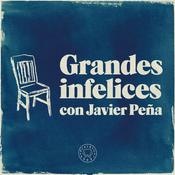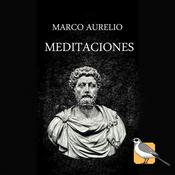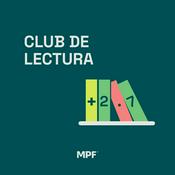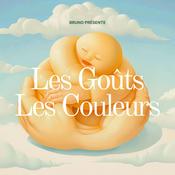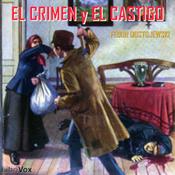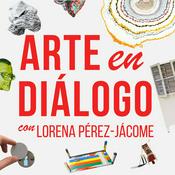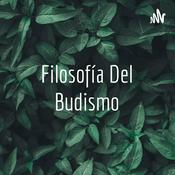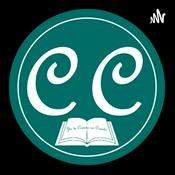Subtext: Conversations about Classic Books and Films
Wes Alwan and Erin O'Luanaigh

Último episodio
159 episodios
- Wes & Erin continue their discussion of Shakespeare’s “Julius Caesar,” and its sustained reflection on how political power is constructed, located, and legitimated.
Upcoming Episodes: “Amadeus,” Susan Sontag’s “On Photography.”
Pre-order Erin’s forthcoming book “Avail” here: http://subtextpodcast.com/avail
For bonus content, become a paid subscriber at Patreon or directly on the Apple Podcasts app. Patreon subscribers also get early access to ad-free regular episodes.
This podcast is part of the Airwave Media podcast network. Visit AirwaveMedia.com to listen and subscribe to other Airwave shows like Good Job, Brain and Big Picture Science.
Email [email protected] to enquire about advertising on the podcast.
Follow: Twitter | Facebook | Website - Wes & Erin continue their discussion of Shakespeare’s “Julius Caesar,” and its sustained reflection on how political power is constructed, located, and legitimated.
Upcoming Episodes: “Amadeus,” Susan Sontag’s “On Photography.”
Pre-order Erin’s forthcoming book “Avail” here: http://subtextpodcast.com/avail
For bonus content, become a paid subscriber at Patreon or directly on the Apple Podcasts app. Patreon subscribers also get early access to ad-free regular episodes.
This podcast is part of the Airwave Media podcast network. Visit AirwaveMedia.com to listen and subscribe to other Airwave shows like Good Job, Brain and Big Picture Science.
Email [email protected] to enquire about advertising on the podcast.
Follow: Twitter | Facebook | Website - Wes & Erin continue their discussion of Shakespeare’s “Julius Caesar,” and its sustained reflection on how political power is constructed, located, and legitimated.
Upcoming Episodes: “Amadeus,” Susan Sontag.
Pre-order Erin’s forthcoming book “Avail” here: http://subtextpodcast.com/avail
For bonus content, become a paid subscriber at Patreon or directly on the Apple Podcasts app. Patreon subscribers also get early access to ad-free regular episodes.
This podcast is part of the Airwave Media podcast network. Visit AirwaveMedia.com to listen and subscribe to other Airwave shows like Good Job, Brain and Big Picture Science.
Email [email protected] to enquire about advertising on the podcast.
Follow: Twitter | Facebook | Website - Brutus is an honorable man, but Caesar is Caesar: at the beginning of Shakespeare’s play, his name is near the point of becoming synonymous with dictatorial power, and his every wish, as Mark Antony points out, has the substance of a command. For the rebels who oppose him, this identification of political authority with personal will is a perversion of republican institutions, and a form of corruption that justifies any means of putting an end to it, even if that means killing a friend. Yet Brutus’s conception of himself as unflaggingly virtuous is one he in fact shares with Caesar, and perhaps reflects the same authoritarian tendency, in grounding the legitimacy of political action in the character of a particular actor. Then again, it is not clear that democratic institutions will always forestall authoritarian tendencies, rather than enable the masses to sanction absolute power in a charismatic leader. Wes & Erin discuss Shakespeare’s “Julius Caesar,” and its sustained reflection on how political power is constructed, located, and legitimated.
Upcoming Episodes: “Amadeus,” Susan Sontag.
Pre-order Erin’s forthcoming book “Avail” here: http://subtextpodcast.com/avail
For bonus content, become a paid subscriber at Patreon or directly on the Apple Podcasts app. Patreon subscribers also get early access to ad-free regular episodes.
This podcast is part of the Airwave Media podcast network. Visit AirwaveMedia.com to listen and subscribe to other Airwave shows like Good Job, Brain and Big Picture Science.
Email [email protected] to enquire about advertising on the podcast.
Follow: Twitter | Facebook | Website - Wes & Erin continue their discussion of the 1949 classic film “The Third Man,” about friendship and betrayal, and about the stories we tell ourselves in order to love, survive, kill, or even die.
Upcoming Episodes: “Julius Caesar.”
Pre-order Erin’s forthcoming book “Avail” here: http://subtextpodcast.com/avail
For bonus content, become a paid subscriber at Patreon or directly on the Apple Podcasts app. Patreon subscribers also get early access to ad-free regular episodes.
This podcast is part of the Airwave Media podcast network. Visit AirwaveMedia.com to listen and subscribe to other Airwave shows like Good Job, Brain and Big Picture Science.
Email [email protected] to enquire about advertising on the podcast.
Follow: Twitter | Facebook | Website
Más podcasts de Arte
Podcasts a la moda de Arte
Acerca de Subtext: Conversations about Classic Books and Films
Subtext is a book club podcast for readers interested in what the greatest works of the human imagination say about life’s big questions. Each episode, philosopher Wes Alwan and poet Erin O’Luanaigh conduct a close reading of a text or film and co-write an audio essay about it in real time. It’s literary analysis, but in the best sense: we try not overly stuffy and pedantic, but rather focus on unearthing what’s most compelling about great books and movies, and how it is they can touch our lives in such a significant way.
Sitio web del podcastEscucha Subtext: Conversations about Classic Books and Films, Un Libro y un Micrófono y muchos más podcasts de todo el mundo con la aplicación de radio.net

Descarga la app gratuita: radio.net
- Añadir radios y podcasts a favoritos
- Transmisión por Wi-Fi y Bluetooth
- Carplay & Android Auto compatible
- Muchas otras funciones de la app
Descarga la app gratuita: radio.net
- Añadir radios y podcasts a favoritos
- Transmisión por Wi-Fi y Bluetooth
- Carplay & Android Auto compatible
- Muchas otras funciones de la app


Subtext: Conversations about Classic Books and Films
Escanea el código,
Descarga la app,
Escucha.
Descarga la app,
Escucha.


